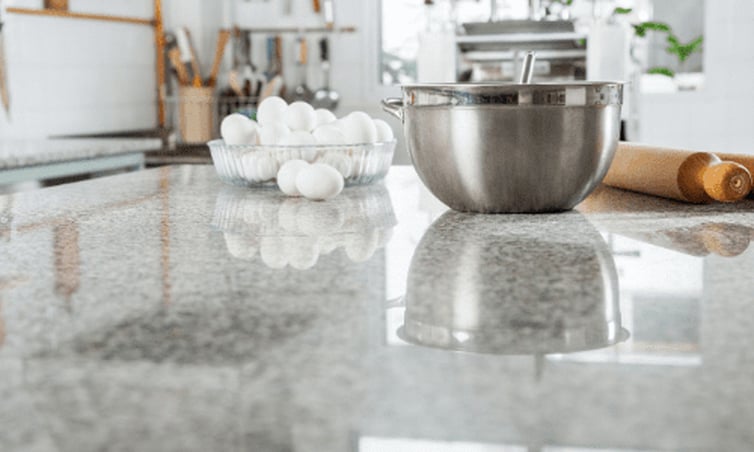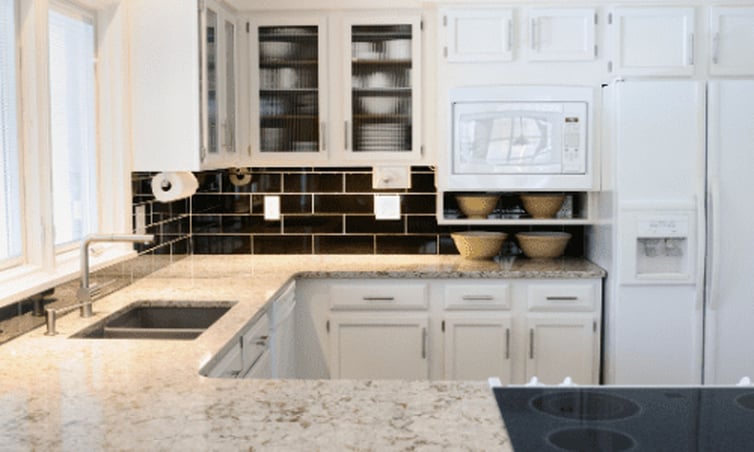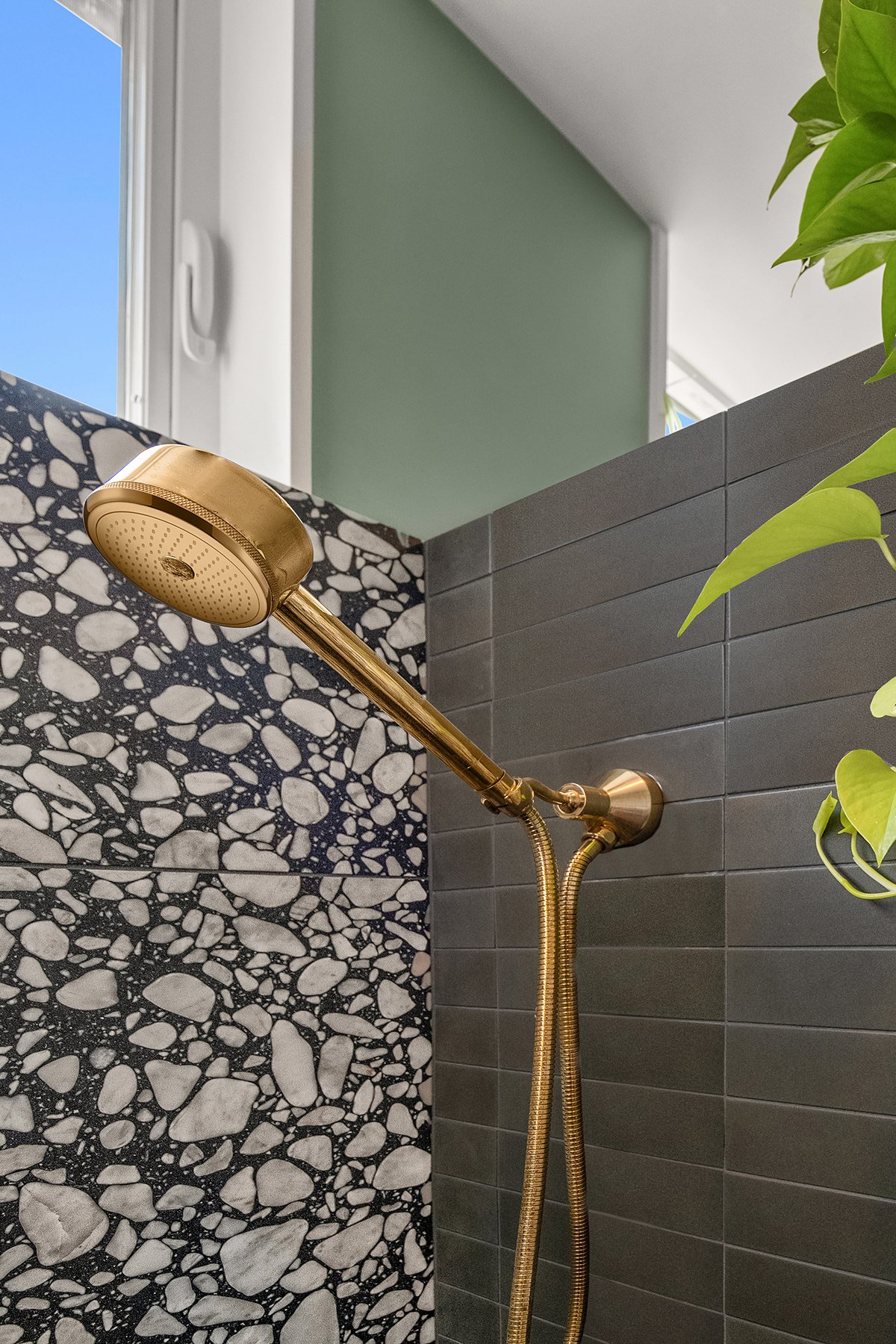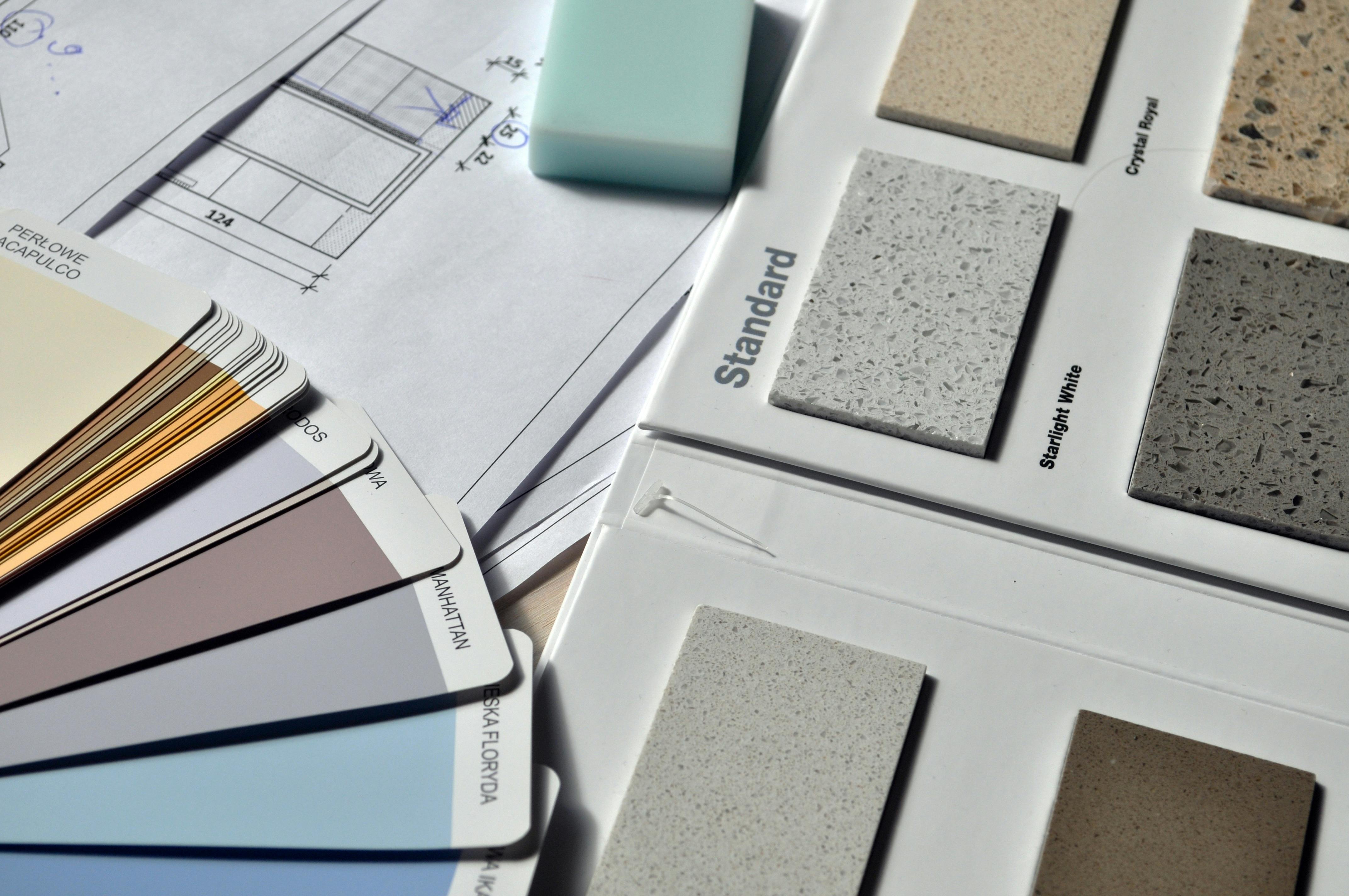3 Reasons to Choose Quartz Over Granite for Kitchen Countertops
Your kitchen countertops see a lot of action on a day-to-day basis. From the time you wake up for breakfast, to the time you are enjoying that late-night snack, your countertops are essential to your everyday lifestyle. They are used not only for preparing food and setting clean dishes to dry, but also organizing your groceries, eating meals, and doing homework and other activities.
In order to effortlessly fulfill this wide variety of uses, your kitchen countertops need to be made from a material that is strong, durable, and easy to maintain. It doesn’t hurt if they are also easy on the eyes. While there are numerous different materials that can be used for kitchen countertops, two materials consistently rank high in the remodeling world: quartz and granite.
Pros and Cons of Quartz vs. Granite
 Quartz and granite have been competing with each other in the kitchen countertop game for quite some time. Different designers may prefer using one material over another. As a homeowner, however, you may find it difficult to distinguish between the materials, let alone figure out which one to choose for your Seattle kitchen remodel. To make that decision, it can be helpful to learn more about these countertop materials and evaluate their individual pros and cons.
Quartz and granite have been competing with each other in the kitchen countertop game for quite some time. Different designers may prefer using one material over another. As a homeowner, however, you may find it difficult to distinguish between the materials, let alone figure out which one to choose for your Seattle kitchen remodel. To make that decision, it can be helpful to learn more about these countertop materials and evaluate their individual pros and cons.
What is Quartz?
Quartz has a nice, natural look but it’s actually composed of crushed up granite, marble, natural stone and recycled materials like ceramic, glass and silica. The material often includes quartz particles, but not solid quartz extracted from a quarry. The amount of each component included in a single countertop slab varies based on the manufacturer and type of quartz. The small pieces are held together using a polymeric or cement-based binder. The process involves blending the stone aggregate, mixing it with polymers, eliminating the air, and then heating and shaping the material into customized slabs. The best way to characterize this material is as engineered stone or compound stone that mimics the hardness, and often the appearance, of natural stone.
What is Granite?
Granite, on the other hand, is composed of very hard stone that comes from quarries. The natural stone is then cut into thin, manageable slabs; polished; and formed into countertops. Because it’s all-natural, every granite slab used for a kitchen countertop will have a slightly different look as a result of the mineral pattern and coloring. This can add a highly unique element to your kitchen aesthetic, but you also may struggle to find the right slab of granite to blend into your particular design style.
Benefits of Using Quartz for Kitchen Countertops

As luxurious and visually luscious materials, both quartz and granite are well-suitable for a high-end kitchen that embodies one of a wide range of design styles, from modern or classic to eclectic or transitional. Both materials require professional installation, and they fall roughly within the same price range. However, there are a few areas where quartz assumes superiority over granite. Here are a few reasons to consider choosing quartz countertops over granite countertops for your Seattle kitchen remodel:
1. Versatile in Form
As an engineered material, quartz tends to be more uniform in appearance, which can help you create a clean, cohesive look in your kitchen. For select kitchen styles, that consistency is key. However, for those homeowners who like that granite slabs naturally possess distinctive colors and veining, keep in mind that quartz is also available in a variety of different colors and unique patterns. This enables you to customize your selection so it fits perfectly into your design aesthetic. Nowadays, some quartz countertops aren't even formed to resemble granite or other natural stone. For example, think of Caesarstone’s innovative and ultra-modern category that includes quartz with crocodile or lace patterns on the surface. In short, you have more design options and versatility when it comes to quartz.
2. Superior Durability
Both granite and quartz are durable materials, but the latter has a slight edge over the former. Granite countertops are relatively porous, which means they require sealing upon installation and regular re-sealing over the coming years if you want to maximize the lifespan of the material. Quartz countertops, on the other hand, are non-porous. The material is fabricated using resins, so it doesn’t require sealing. Plus, quartz is less prone to cracking and more stain- and bacteria-resistant than granite. In general, you won’t have to do as much cleaning and maintenance to take care of your quartz countertops in the coming years. This durability is an advantage, whether you’re remodeling a family kitchen used by household members of varying ages and abilities or upgrading a high-end kitchen used primarily for cooking and entertaining.
3. Eco-Friendly
There is some debate about whether quartz or granite is more environmentally friendly, and it’s a nuanced comparison. However, one benefit of quartz countertops is they’re mostly made of stone-like materials that are left over from other manufacturing or quarrying processes. As opposed to granite, no natural stone is quarried for the sole purpose of fabricating quartz countertops. You can also source quartz from regional manufacturers and fabricators, which decreases the distance the material needs to be transported and the associated use of fuel. Manufacturers are also increasing their use of resins that are more natural and less synthetic, which supports the health and wellness of your family and the environment.
Selecting Countertops for Your Kitchen Remodel
While there are few distinctions between quartz and granite when it comes to cost and ease of installation, quartz tends to be more long-lasting, durable and easy to maintain than its all-natural counterpart. At the end of the day, it comes down to your particular priorities for appearance and function. While planning your kitchen remodel in Seattle, our experienced interior designer at Innovative Home Renovations can help you navigate the decision-making process and select the right countertops—and cabinets, flooring and other features—to fit your lifestyle and satisfy your personal tastes.





by Bennett Bottorff